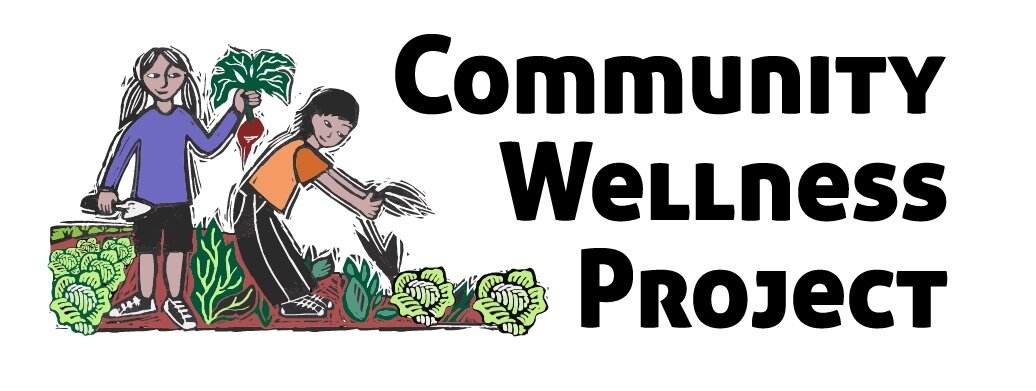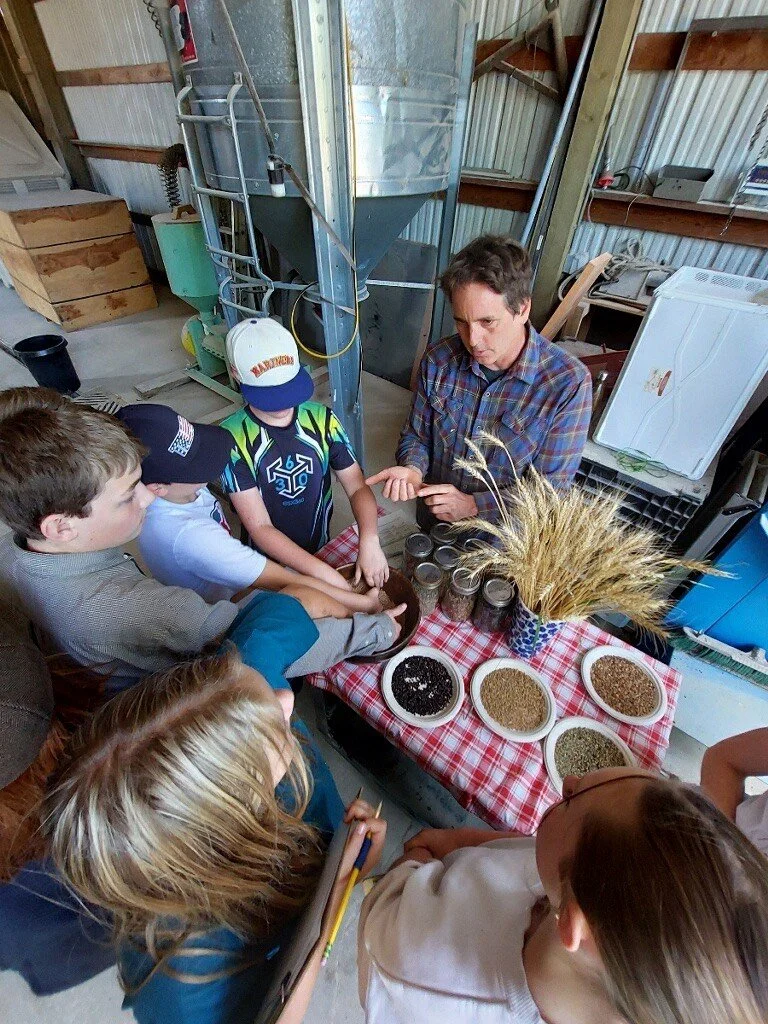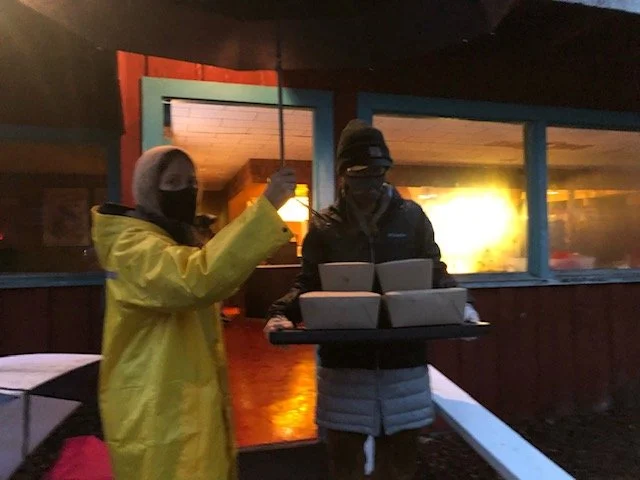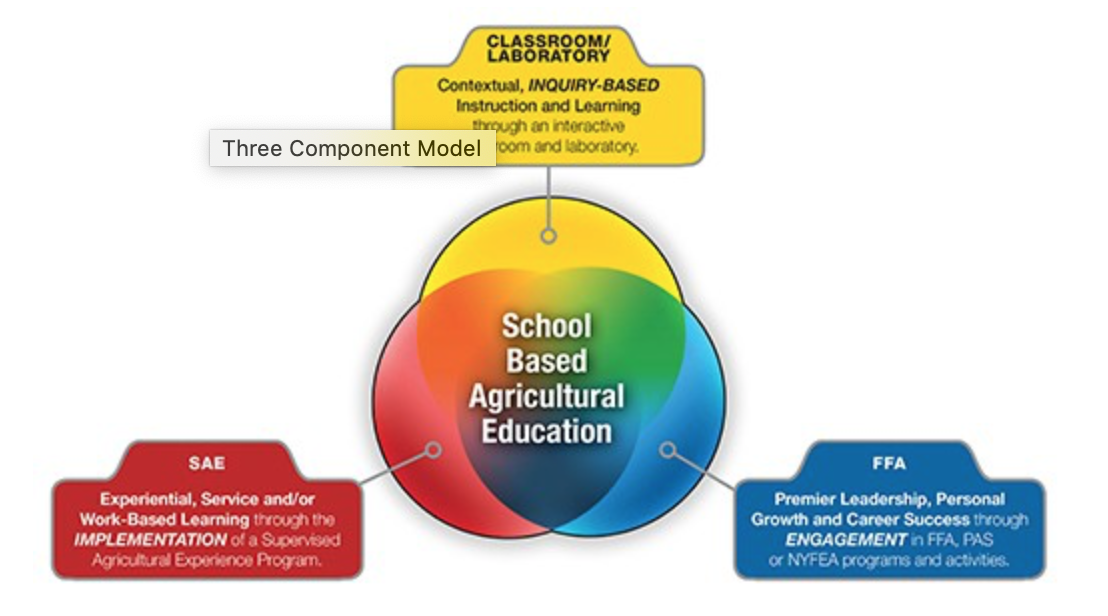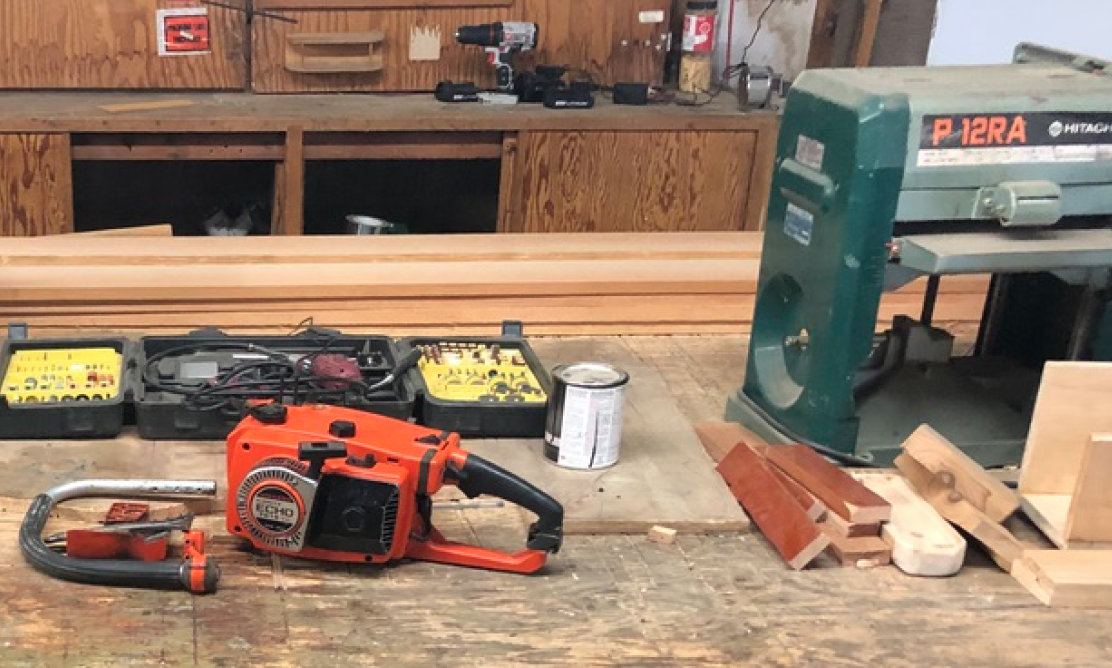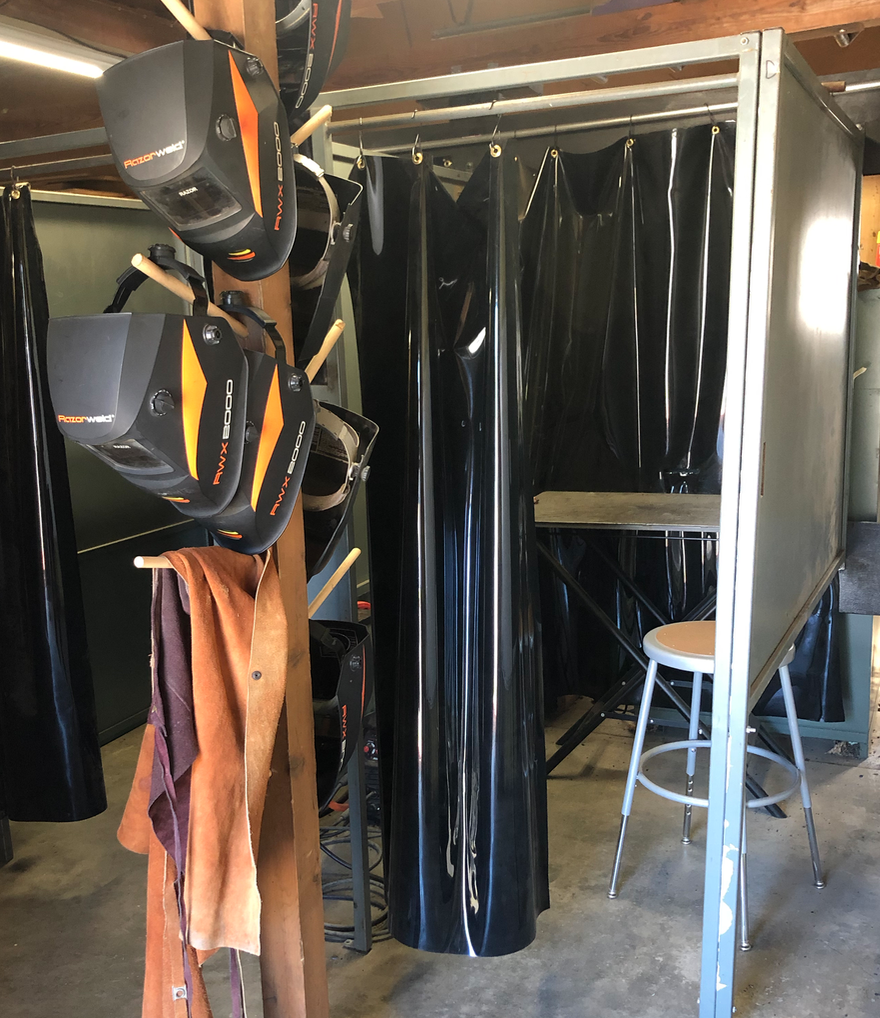Chimacum 6th graders visit Chimacum Valley Grainery to learn about growing, harvesting, processing and baking grains.
Grand Opening for Chimacum's Healing Garden
This Giving Tuesday, donate to Give Jefferson 2022
Today is GivingTuesday, an international day of radical generosity created in 2012 to encourage people to do good. It is now a “global movement that inspires hundreds of millions of people to give, collaborate, and celebrate generosity.”
This GivingTuesday, consider a generous contribution to Give Jefferson. There are people in our community living without homes, without food, without medical and mental health care. Give Jefferson raises funds to support the local frontline organizations that provide safety net services to meet needs like these:
Housing & Shelter * Food Security * Healthcare * Children & Family Services * Education
* Financial Assistance * Advocacy and *HOPE!
Each year for the past several years, Community Wellness Project has been a partner organization with the Jefferson Community Foundation & United Good Neighbors Give Jefferson campaign. These funds have given our organization the capacity to support Little Free Pantries, Neighbor Loaves, a winter food box delivery partnership with the Olympic Peninsula YMCA, and all of our Farm to School programs across East Jefferson County. When students and their families have access to enough fresh, high quality, local food, they are better able to grown, learn, and thrive. And feeding children in a way that also strengthens local food systems makes our community and local economy healthier, more resilient, and more sustainable.
This GivingTuesday, and throughout the holiday season, consider making a donation to the Community Wellness Project, or more broadly to Give Jefferson, who then allocates funds to organizations that provide social services in East Jefferson County. When you donate to Give Jefferson, and to the Community Wellness Project, you help our students and their families weather financial challenges, food insecurity, and uncertainty. Your generosity makes a difference to the children of our community, and to the future!
Harvest Dinner a Fundraising Success!
Thanks to all who joined in person, via Zoom, or in spirit for the 6th Annual Harvest Dinner, October 19th, 2022, at Finnriver Farm. It was truly wonderful to gather for a meal and share stories of progress from the past year—and together we raised $23,000 for Farm to School programs in East Jefferson County!
These funds will: 1) help school Food Service Directors purchase locally grown food products for service in school meals; 2) support cooking classes and food education across the grades K-12; 3) fund school gardens and garden education; 4) support specific initiatives to lower barriers for purchasing and preparing local food in school food services programs. In other words, these funds will make a real, tangible difference in the health, resilience, and wellbeing of Jefferson County students and their families!
We are grateful and honored to do this work with you and among you, who value, prioritize, and invest in our community’s children. Thank you for your vision and your values.
A delicious, locally-sourced meal was planned and prepared by our team of Food Services Directors from Quilcene, Chimacum, and Port Townsend. High School Culinary Arts students crafted delectable desserts. Several of you asked for recipes from the evening; here are a few to make and share with your nearest and dearest through the dark winter months:
Syrian Pomegranate Spread
2 cups roasted walnuts
½ cup roasted red peppers
2 tablespoons pomegranate molasses
2 teaspoons smoked paprika
1 garlic clove minced
Pinch of sea salt
½ teaspoon sugar
1 teaspoon lemon juice
½ teaspoon Aleppo chillies or cayenne
3 tablespoons olive oil
Add roasted walnuts to food processor; blend until almost walnut butter
Add roasted peppers and puree until combined
Scrape bowl, and add all other ingredients; blend until fairly smooth
Taste and adjust as needed
Allow to set a few hours to allow flavors to blend
And as always, a warm and hearty thanks to our event sponsors—without whom this wonderful evening would not have been a success. Please thank them for their generosity, and patronize their businesses!
Now, like all good gardeners, we dig deep and begin to plan, strategize, let the winter rains wash over us, and germinate these seeds you all have planted—so next year we can continue to nourish our students, and build flourishing schools with joy and abundance!
Port Townsend to Hire New School Production Garden Lead
The garden at Salish Coast Elementary School has an established teaching garden space and is in the beginning stage of the development of a production garden to support the school food service program that features scratch cooking and locally sourced foods.
The School Production Garden Coordinator is compensated through a part-time contract. Primary duties involve managing farm installation timeline as part of a team and coordinating the "hands on" elements of farm installation. Ongoing work will involve the initial set up and maintenance of crops in a hoophouse, greenhouse, and possibly a small orchard. The Production Garden Coordinator may assist the Teaching Garden Coordinator in leading activities with elementary classes. Additionally, the School Production Garden Coordinator will organize school staff, parents, and students to develop and maintain the school garden site.
The school district will contract with the Coordinator for up to 20 hours/week at a rate of $24.50/hour for 36 weeks during spring, summer and fall. Summer and Fall of 2022 and Spring of 2023. The Coordinator will work with the Food Service Director to schedule these hours.
Required qualifications:
● Knowledge of science as it is related to plants
● One year of experience in production farm management
● Ability to work with a diverse group of age levels, including students, staff, community members
● Strong interpersonal and communication skills
● Ability and desire to work outside
● Experience in gardening and farming and familiarity with Pacific Northwest planting timelines, production methods, plant diseases, irrigation, etc.
● Familiarity with basic ability to troubleshoot mechanics of small scale farming technology
● Ability to lift 40 pounds
● Ability to use garden equipment
● Oral and written communication skills
● Organizational skills
Scope of work:
● Install and manage the set up of new production garden systems including irrigation and other systems for crop management.
● Coordinate with the Food Services Director to select appropriate foods to grow and feature in the growing period. Initially this will involve starting the production garden.
● Design and maintain the planting and harvesting schedule.
● Maintain composting bins and process compost.
● Maintain greenhouse, hoop house, and other garden facilities.
● Organize garden volunteers including students, families, community members, and staff.
● Attend and advise garden committee planning sessions and support activities established by this group to promote the development of the garden.
● Work with various Port Townsend School district personnel (Food Service Director, Principal, Place-Based Learning Director, Maintenance Director, and Food Service Director) to continue development of garden and the construction of the production garden and greenhouse
● Collaborate with the Teaching Garden Coordinator in all aspects of garden maintenance, including design and maintenance of the produce ordering system for school food service. This includes managing ordering, harvesting, washing, packing, and delivery of produce to food service.
Contact Stacey Larsen, slarsen@ptschools.org, for more information or with a letter of interest.
$96,428 USDA Farm to School Grant Awarded to PTSD
Place-based learning just expanded to include “plant-based” learning for the next two years at the Port Townsend High School and Salish Coast Elementary School gardens.
The USDA Farm to School Grant is an ongoing program covering all states.
“The Port Townsend School District Farm to School Program, in collaboration with Washington State University Small Farms Program, will improve edible school garden spaces across the district and support development and implementation of a PreK-9th grade agriculture education curriculum. The project will complete a school production garden at the elementary school and add infrastructure to the high school garden to support growing and harvesting of local produce for school meals. The agriculture curriculum will support students participating in production of food for school meals and increase their knowledge of local food systems and agriculture.”
According to project leader, Sarah Rubenstein, the cash will be evenly split across 2022 and 2023 school years, starting with building out the production garden at Salish Coast Elementary (currently under a black tarp). It will include building a tall hoop house and greenhouse at Salish Coast Elementary and adding hand washing stations to both the elementary and high school gardens. Additionally it will support curriculum development for an educational program at the large Blue Heron Middle School orchard. Last year, the 70 trees in the orchard produced 2000 pounds of fruit that was served in school lunches.
Working with Sarah to flesh out the garden design, educational program and what to plant is Salish Coast School Garden Coordinator Leta Fetherolf, teachers from both schools, cooks looking to expand recipes, and Justin Gray who will be overseeing permitting and construction. Together they will finalize a garden that is highly productive, easy to maintain, and be a deer-free zone.
Over at the orchard, the figs are being turned into cookies; apples are eaten fresh or turned into sauce to be used in muffins.
In the spring, all gardens will need adult volunteers to help get them off to a fast start. If you would like to add your name to the volunteer list, please contact Leta.
Outdoor Movie Night Harvest Dinner Fundraiser: Unrelenting Rain, Wonderful Community!
The Last First Day of School
By Ava Vaughan, Senior Chimacum High School
This week, while preparing for my “last first day of school,” I found myself reflecting on memories from twelve years ago. The year was 2009, and the start of Kindergarten couldn’t come any sooner. The summer had been full of anticipation and seemed to last years. I vividly remember waiting for the bus in my pink Disney Princess backpack and new yellow rain boots. I came home that day tired and muddy but with a passion for learning (aka recess) and a longing to do it all again the next day.
Ava Vaughan, first day of school 2009
Twelve years later, summers have become shorter, and the class loads have become more daunting, but the same anticipation remains. In the time I have been at Chimacum, I’ve learned much more than core curriculum standards.
From exploring local food systems to repairing riparian zones, going to school in such a uniquely situated district has cultivated an overwhelming sense of pride in my education and community. As I led a freshman orientation, I realized just how many exciting things there were around campus. On the left were the new greenhouses and outdoor classroom fit with a pizza oven and prep table. Just behind the track, one could admire the cows grazing and hear the horticulture beehives.
Views of the valley from the classrooms, Chimacum Creek, the smell of freshly cooked, local food from the kitchen were all things that I was proud to make a note of to our incoming students.
As I prepare for life after high school, I think of the fantastic opportunities I had growing up in a small rural school district. I reminisce on the field trips, activities, community, and classrooms that taught me so much. My education instilled in me skills that not only made me a better individual but a better community member: interdependence, compassion, ingenuity, and resilience. In the future, I can only hope to bring the lessons I have learned with me into my adult life. My yellow rain boot days may be over, but my love and appreciation for the school that has taught me so much endures
From Seeds to Agricultural Mechanics
Annetta Carey-Fuson, teaching under Covid protocals
From seed, to harvest, to fixing tools, students in Quilcene schools can elect classes that teach them the science of agriculture along with the skills needed for an active farm. Teacher Annetta Carey-Fuson provides instruction of both in her CTE (career technical education) classes.
Beside agricultural science, Annette also teaches agricultural mechanics focused on woodworking and welding. Both skills are highly valued on a farm where new tools are created to solve a problem or current tools must be repaired. Under Annetta's guidance, students gain knowledge in how to use power tools and make welds using Acetylene, TIG, MIG, and ARC welding processes.
CTE classes are unique in that they have an advisory committee made up of parents, students, retired teachers, and community members. The group adds their suggestions to the framework of standards that must be met. A full CTE program is comprised of SAE (Supervised Agricultural Experience) which is student-led, but instructor-supervised work providing measurable results and real-life experiences, traditional classroom instruction, and leadership and career paths as established by the FFA.
This year in the agricultural science class, the corn and bean “seed” is the crop (and not the vegetable). Students are growing varieties which have proven successful in Jefferson county. Instead of eating the results, they'll be saving the seed to expand the crop next year when school is back to full sessions. Along the way they are learning the science behind why some seeds do better than others in our PNW climate. Ag students are also responsible for the planting and maintenance of the new Fork Farm hydroponic system featured in this post. As the world becomes dryer, these water-saving systems could be what a modern farm will employ.
This CTE program is the beginning of knowing how to make a plant or a business grow. For more information, contact Annetta Carey-Fuson.
Gardening is Embedded at PTHS
Embedded education, what does that look like?
In Port Townsend High School it looks like Jen Kruse's freshman health class where the students work in the school’s veggie garden and taste test the produce, or stepping it up a notch in her Culinary Arts class. Prior to the COVID shutdown, that meant about 75 hours of hands-on education. During COVID, the hours were cut back to about 40 when classes resumed along with the spring planting season. The lessons were still learned -- fresh tastes better and garden work is fun.
Freshman students are required to take health education, but because of their positive experience many return to participate in the garden as juniors and seniors, take Jen's CTE Culinary Arts class, or join the Sustainability Club mentioned in last month's post.
Jen encourages students to learn about their own eating habits by keeping food diaries and understanding what plants contain what kind of vitamins and minerals. She uses an assortment of online apps such as Cronometer.com to quickly show the "content label" per se, on a whole food. Students are challenged to create a menu with a well-balanced meal and to know what makes a healthy snack.
In the Culinary Arts, students learn about knife handling (always a good idea…) and how to create comfort food for less. "They love the breakfast options, but also enjoy freshly made soups, and how imaginative plating or adding color and edible flowers into a salad turns boring into delicious. Of course, they also can't get enough of garden fresh potatoes turned into French fries," says Jen.
Students enjoy the positive feedback they receive when something they help grow ends up on the cafeteria plates under PT Schools Food Director, Stacey Larsen's monthly plan. They also learn what it means to be part of a community when some of that grown produce goes to the Port Townsend Food Bank and the Food Bank gives feedback that their Romaine lettuce disappears quickly, or the Culinary Arts class creates a finished meal to give to a shelter.
Bottom line, everything has to taste amazing or why do it? From taste testing store bought strawberries against garden grown or making their own pesto and tomato sauce from scratch, the freshmen and Culinary Arts students learn how growing/eating fresh makes a meal memorable.
For the 80-100 kids working in the garden to the 20-40 taking her Culinary Arts class, hopefully the lessons learned will become embedded in their lives.
